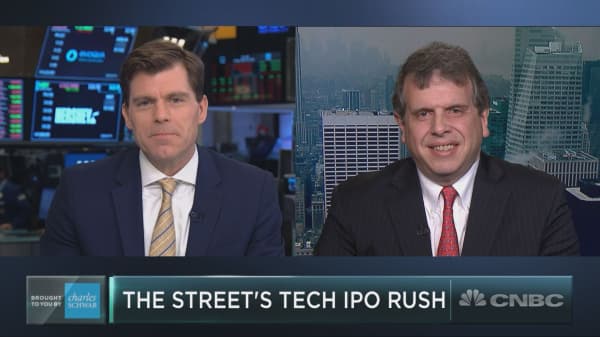U.S. government debt yields rose Monday as strong manufacturing data in the United States and China triggered a pivot toward riskier assets.
The yield on the benchmark 10-year Treasury note rose 6 basis points 2.483 percent, while the yield on the 30-year Treasury bond climbed to 2.876 percent. Bond yields move inversely to prices.
Yields rose in early trading Monday after a U.S. manufacturing industry report showed that activity rose slightly more than expected in March as production, new orders and hiring all accelerated.
The Institute for Supply Management (ISM) said its index of national factory activity rose to 55.3 from 54.2 in February, the lowest level since November 2016. The reading was slightly above expectations of 54.5 from a Reuters poll of 69 economists.
Meanwhile, U.S. construction spending rose for a third consecutive month in February, bolstered by private and public construction projects. The Commerce Department said that spending rose 1 percent to a nine-month high.
"The recent data are promising — they suggest that things were finally bottoming out at the end of the first quarter. Now the question is whether there will be enough momentum in the system to lift growth, particularly in the manufacturing sectors," Nathan Sheets, chief economist at PGIM Fixed Income, wrote in an email.
In China, a report showed that its manufacturing activity expanded unexpectedly in March, a private survey showed, at its fastest pace in eight months. The reports of better-than-expected manufacturing activity helped ease some fears of a widespread growth downturn that has dampened markets in recent weeks.
The U.S. and China have also concluded their latest round of trade talks last week, and are due to meet for further discussions in Washington this week. U.S. officials last week said that China had made proposals on various issues, including forced technology transfers, that go further than previous commitments.
"All eyes will be on the data from China over the next couple of months," Sheets added. "How much stimulus is there in the pipeline? And how will it affect the Chinese economy and the global economy?"
— CNBC's Ryan Browne contributed reporting.
 From Lyft to Airbnb, investors shouldn't worry the newest tech IPO rush signals a top: Nick Colas 3:44 PM ET Fri, 22 March 2019 | 03:53 Disclaimer
From Lyft to Airbnb, investors shouldn't worry the newest tech IPO rush signals a top: Nick Colas 3:44 PM ET Fri, 22 March 2019 | 03:53 Disclaimer